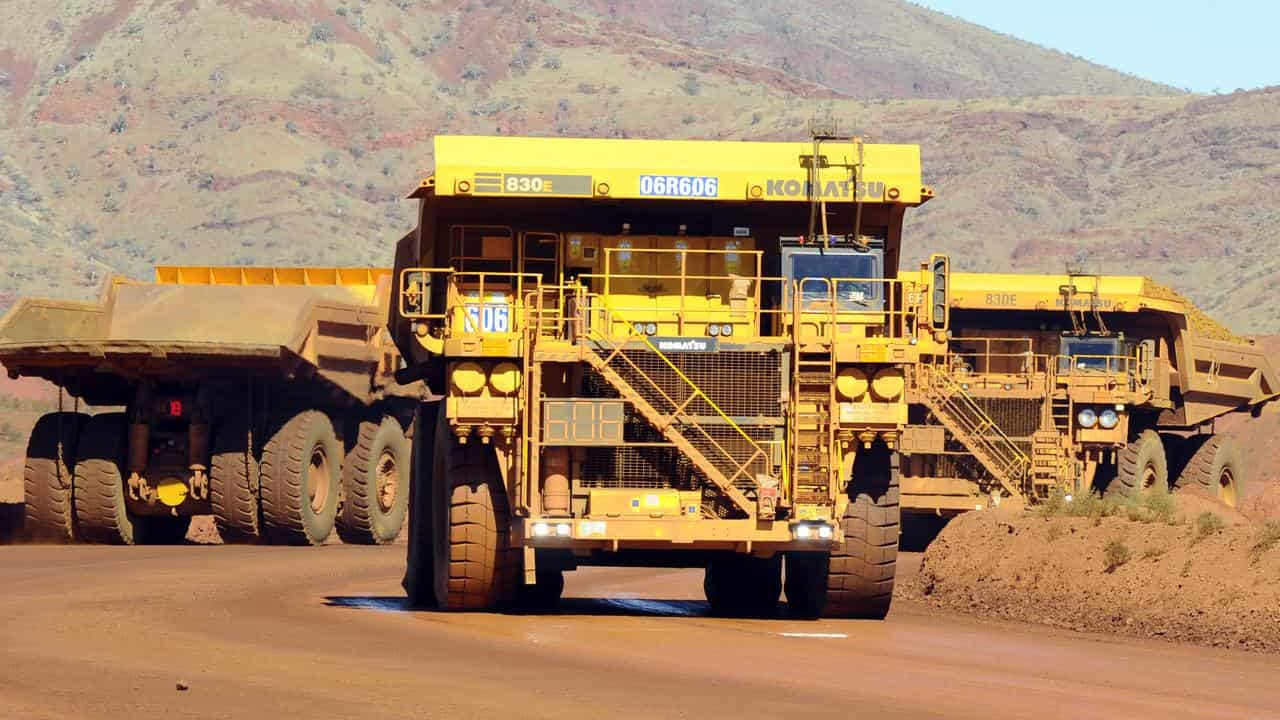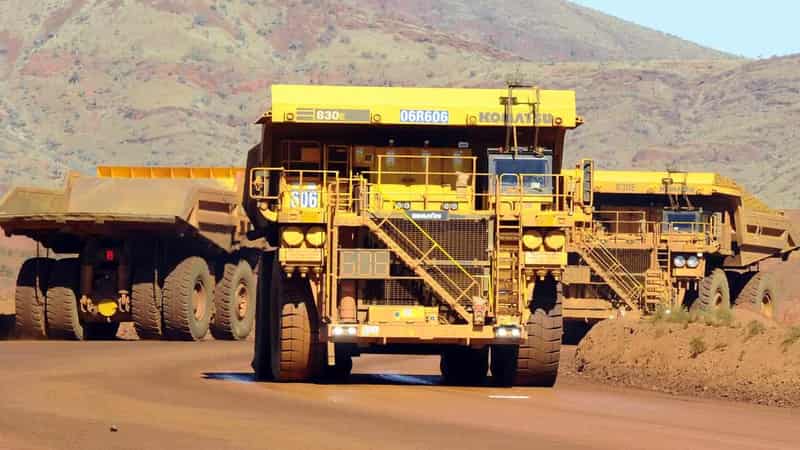
Vegetable oil, old mining shafts to store energy and turning coal into hydrogen are among the technologies being trialled to reduce emissions in the resources sector.
A climate action report released by the Minerals Council on Wednesday marks the first three years of the industry's net-zero by 2050 efforts.
The carbon-laden sector makes up around 40 per cent of emissions covered under a recently beefed-up national emissions safeguard mechanism and accounts for over two-thirds of Australia's exports.
Direct emissions from mining related operations covered by the mechanism fell by 9.3 per cent in FY22, outperforming other sectors, the report found.
At the same time, mining royalties and company taxes more than trebled, the Climate Action Plan Progress Report 2023 said.
Reducing diesel use in mining is a big ticket item - for operating costs and pollution - as the emissions equate to around eight million tonnes per annum.
Japan's Komatsu, for example, is working with BHP, Rio Tinto and other international companies to develop a commercially viable electric truck to be available by the end of this decade.
Alternative fuels may bridge the gap until electric trucking fleets are reading to be rolled out at mining sites.
For that reason, BHP’s Yandi iron ore mine is working with BP on a trial of "hydrotreated vegetable oil" for haul trucks and other mining equipment.
Old mining shafts are being considered as a possible energy storage solution. Yancoal has partnered with Green Gravity to study this technology at the former Austar coal mine in NSW.
Newcrest Mining has completed electric vehicle studies for its Cadia and Havieron goldmining operations, and begun a hybrid haul dump loader trial as a potential transition technology.
Investment in solar and wind farms is underway to decarbonise Western Australian iron ore operations.
Meanwhile Orica is rolling out emissions-reduction technology in NSW that aims to slash more than half a million tonnes of emissions a year and 11 per cent of Australia’s total chemical industry process emissions.
The same technology will be deployed at the Yarwun manufacturing facility in Gladstone, Queensland, to reduce emissions from the site by 200,000 tonnes per year.
Other more contentious case studies include Glencore's project that would use coal and carbon capture and storage to make hydrogen and ammonia.
New rules demanding deeper emissions cuts from the country's 215 biggest emitters came into effect on July 1.
Facilities will need to develop technologies and processes to reduce their emissions or spend more on carbon offsets, or do both.
The resources sector is also competing for a share of the $15 billion National Reconstruction Fund and $1.9 billion Powering the Regions Fund, which are key planks of federal Labor's push to reduce nationwide emissions by 43 per cent by 2030.









